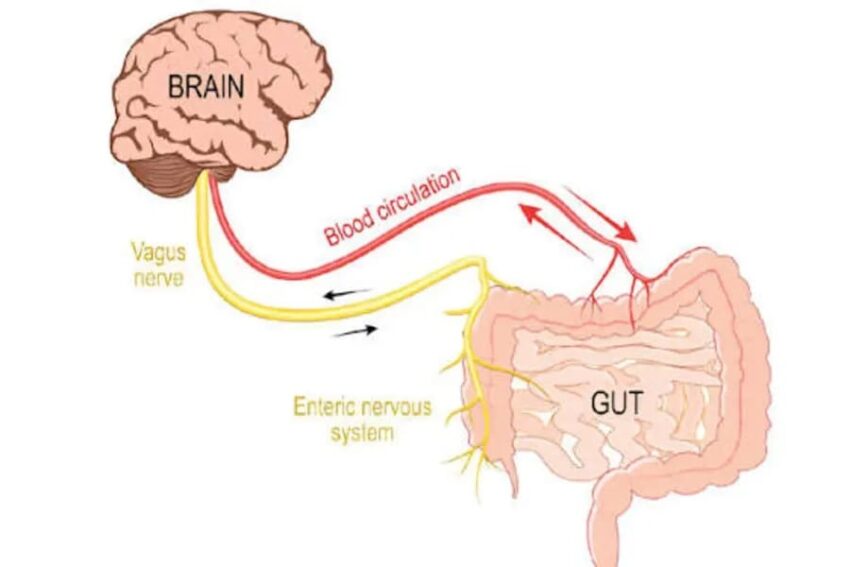Has your stomach ever gotten knotted with tension on a stressful day? Or felt the “butterflies” before you go and present or go on stage? This is not simply your mind, but gut anxiety. Scientists are starting to understand that the gut and brain have a deep connection, a bi-directional “communicating” system called gut-brain axis. When this system is not working balanced, the more emotional stress can be experienced physically and digestive issues worsen anxiety.
The Science Behind Gut Anxiety
Your gut is the home of a massive community of microbes, which literally number in trillions and do a lot of important stuff such as digesting food, producing vitamins and even regulating mood among others. This “second brain” is referred to as the enteric nervous system and it communicates with your brain via nerves as well as chemical messengers. When faced with stress, the gut responds virtually instantaneously. For some people, this means feeling a sense of discomfort such as bloating, cramps or even sickness, while others may notice some changes in how they eat or use the toilet. The physical aspect of gut anxiety is thus present and it is in fact more common than many people think.
Research has indicated that an imbalanced gut microbiome can lead to an increase in the stress hormone production, with cortisol among them, as a result. This not only hinders your digestive process but also could make you feel anxious, sad, and irritable thus boosting your overall negative moods. Therefore, taking care of your gut is not only about making sure you don’t have bloating issues; it is also about being mentally healthy.
Indicators That Your Gut And Your Mind Are Out Of Sync
Stomach stress can cause mental stress and it can be hard to differentiate between the two Some signs of gut anxiety that you can check:
- Regular bloating, craps, or gas
- Immediate alterations in bowel movements
- Feeling sick to the stomach before stressful situations
- Sleeping problem that is associated with digestive discomfort
Identifying these symptoms at an early stage can be beneficial for you to intervene before anxiety develops into bigger problems either mentally or physically.
How to Improve Gut Health
The process of improving your gut health can be plain and simple. Below mentioned are some steps that you can take straightforwardly:
- Balanced Diet with High Fiber: Fruits and Vegetables Having a diet rich in fibrous fruits and vegetables is one of the best, keeping your digestive system in order. Balancing out your diet and including green vegetables will also help in digestion and elimination of wastes and toxins from your system. Regular and proper intake of vegetables will help in the proper functioning of kidneys and urinary system. The urinary and secretory system also keeps wastes and toxins under constant check, eliminating them from your blood. Frequent intake of vegetables will stimulate the elimination of toxins and wastes from your blood.
- Cutting Processed Foods and Sugar: Eating a lot of processed foods can change your gut bacteria balance and increase gut anxiety. When aiming to improve gut health, consider substituting sweets such as cake, cookies, and candy with more gut-friendly options like nuts, seeds, or fresh fruit.
- Controlling Stress by Mindfulness: Stress Relief through Mindfulness Meditation, deep breathing, and yoga promote stillness of the mind and the settling of the gut. Furthermore, just 10 minutes of daily practice can make a remarkable difference.
- Keep Moving: Some forms of regular exercises and physical activities help in improving gut motility as well as in the movement of friendly microbes in the gut. Low intensity moving activities like walking, cycling, or stretches help in digestion and in relief of anxiety.
- Sleep Comes First: Insufficient sleep can alter the states of gut bacteria leading to an increase in inflammation, which, in turn, results in more anxiety. So, getting 7–9 hours of quality sleep each night is the key to keeping your mind and gut aligned.
The Takeaway
The gut is not only a part of your body that breaks down food but is also a way to see your psychological health. Knowledge of nervous system-gut relation allows one to identify and handle gut anxiety which is a precursor to overwhelming life events. Practicing mindful eating, controlling stress, keeping fit, and having a restful sleep are some of the ways you can take care of your digestive as well as your emotional health. It is okay to begin with a little, recognize the shifts, and have your gut lead you to a peaceful mind that is also healthy.

